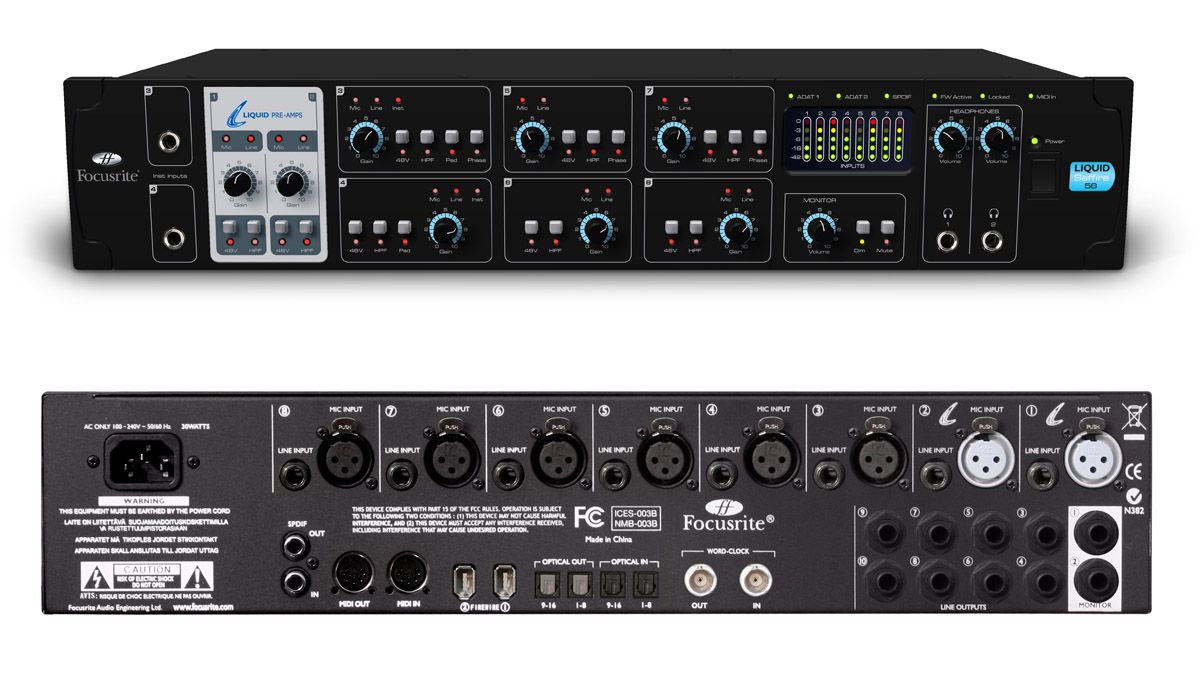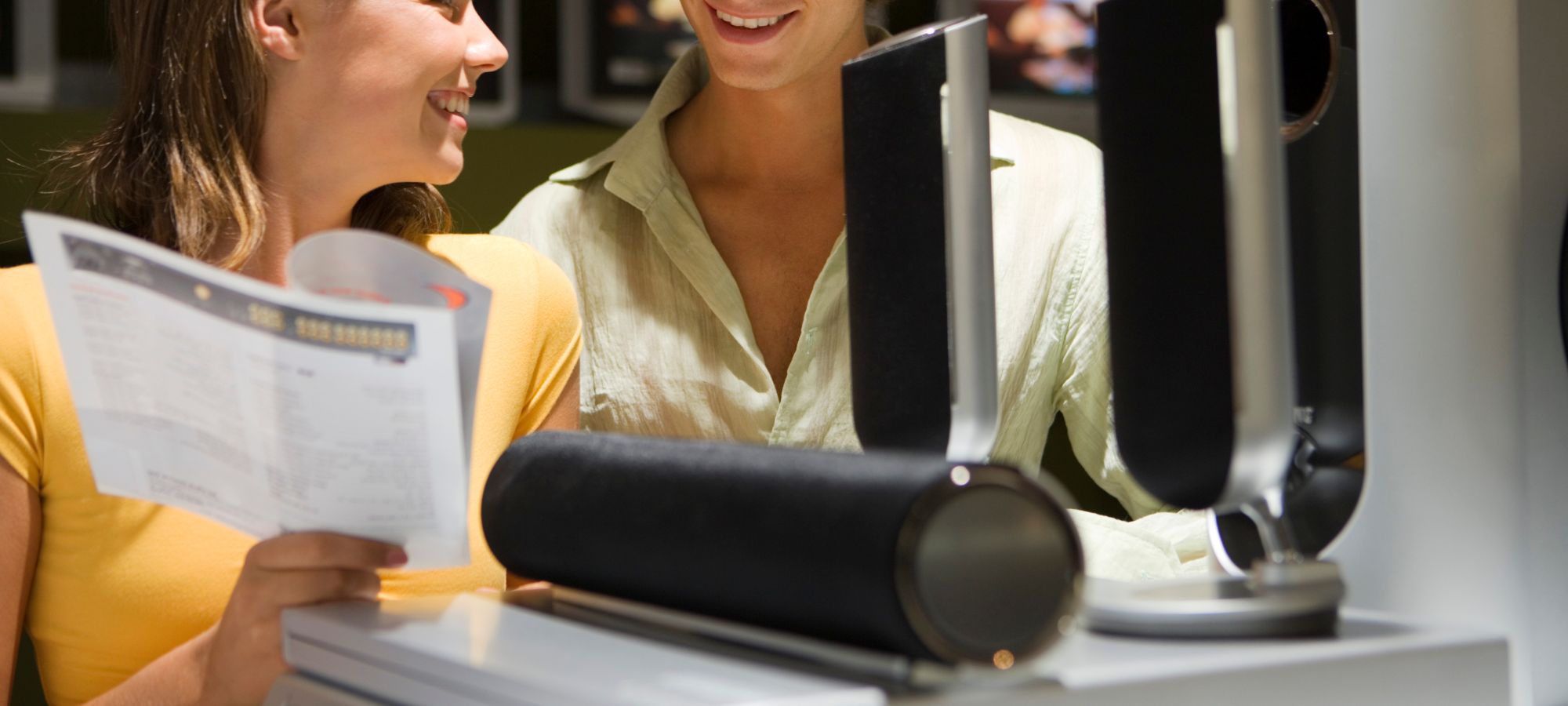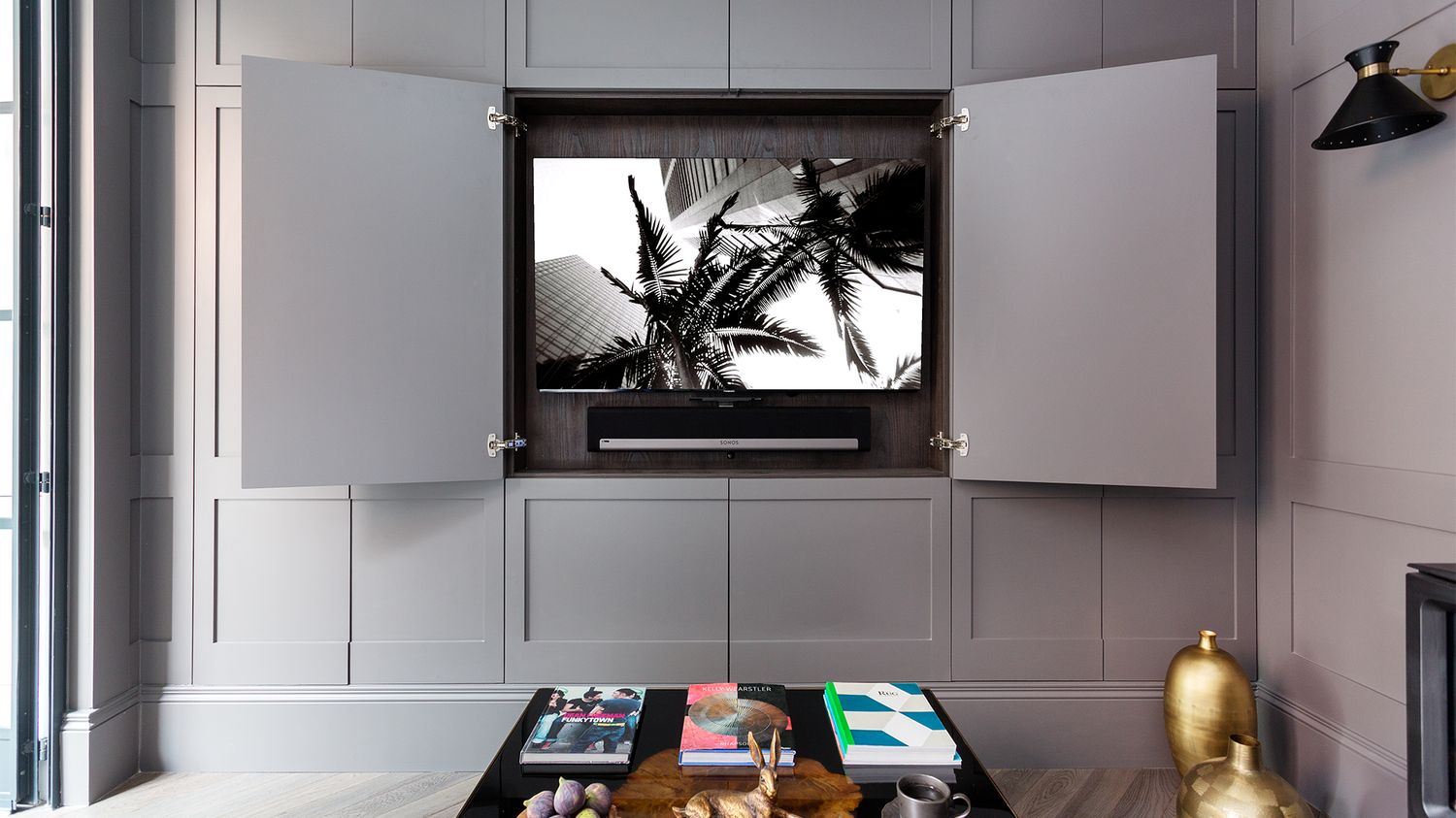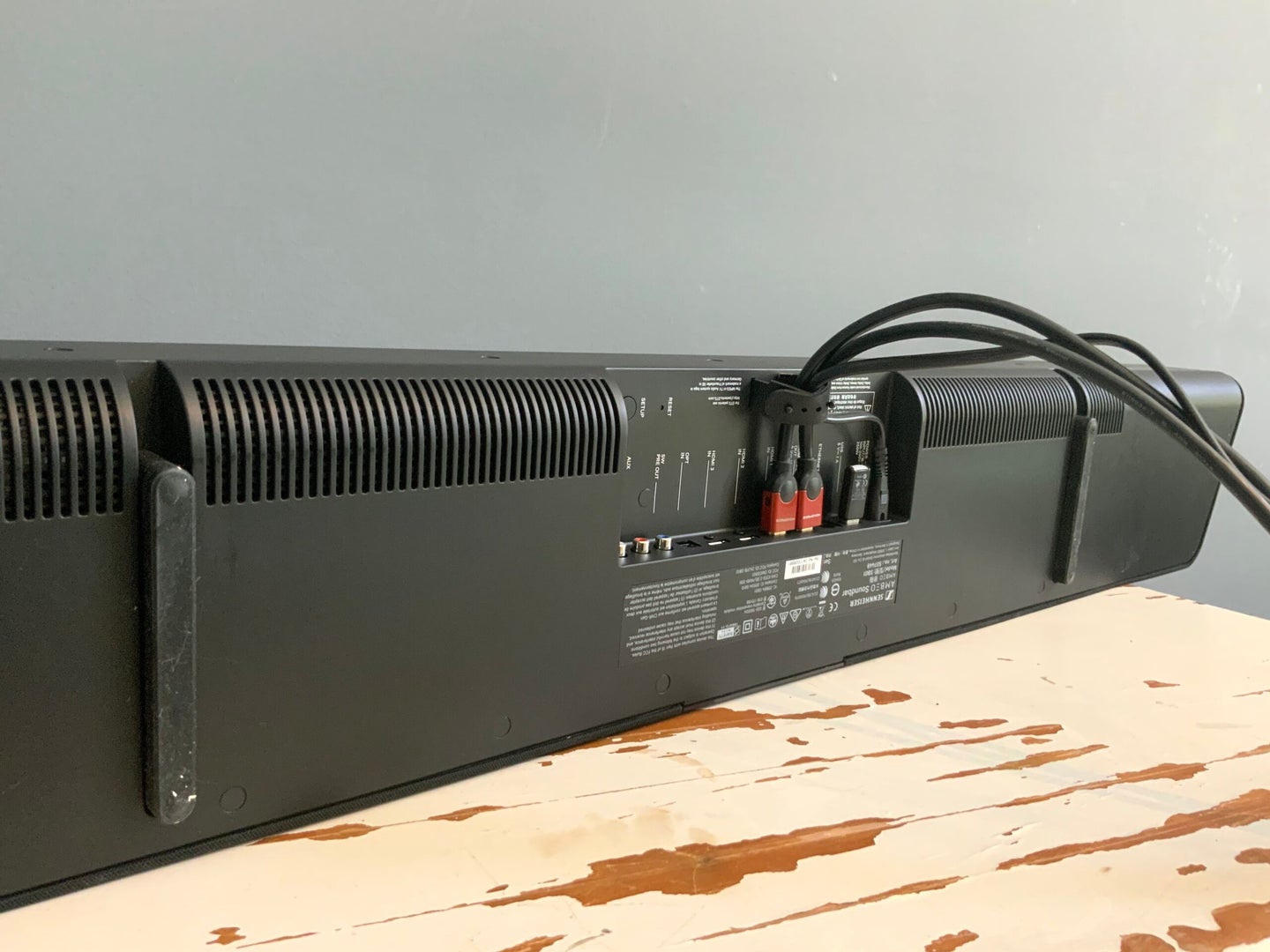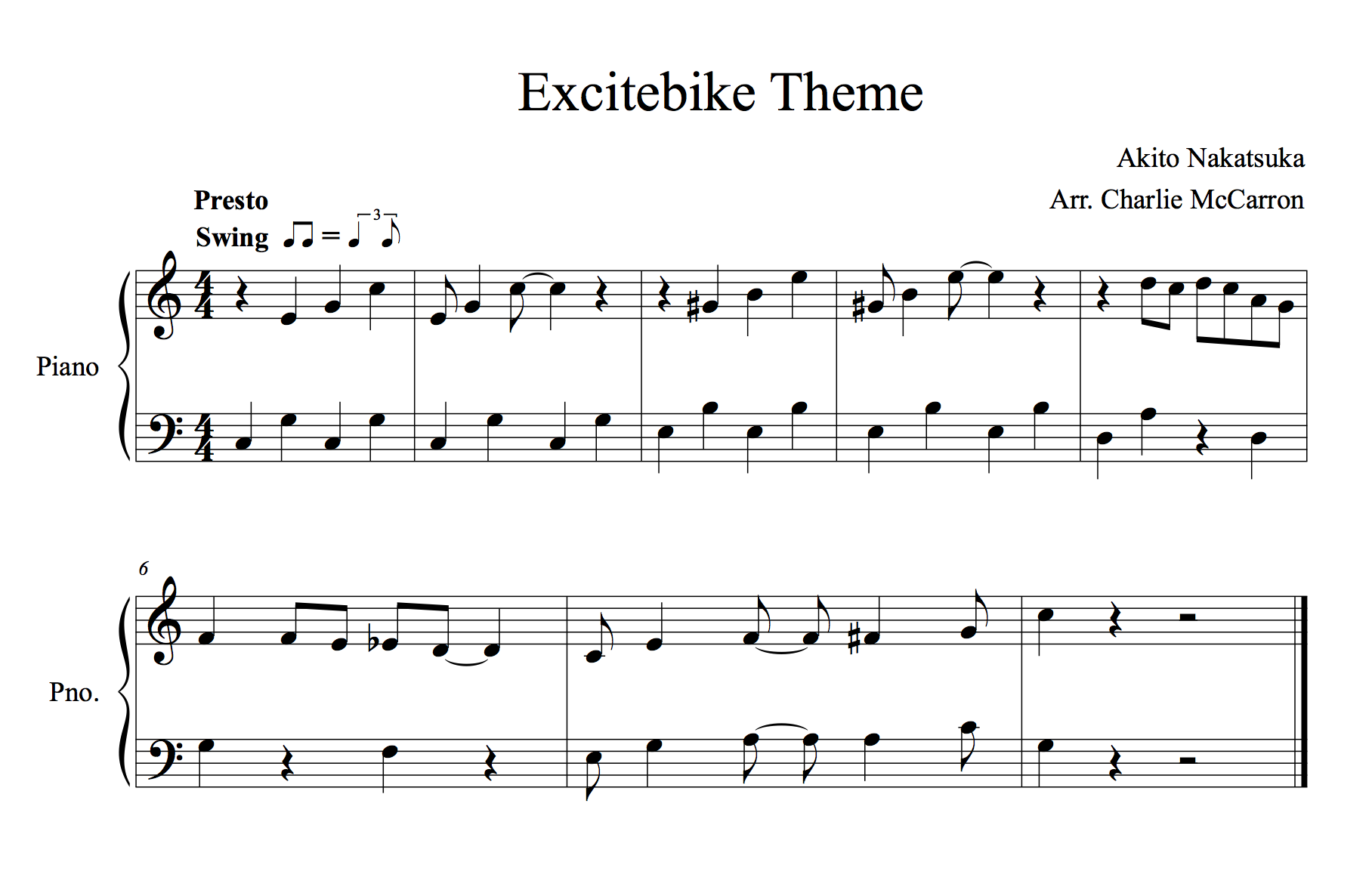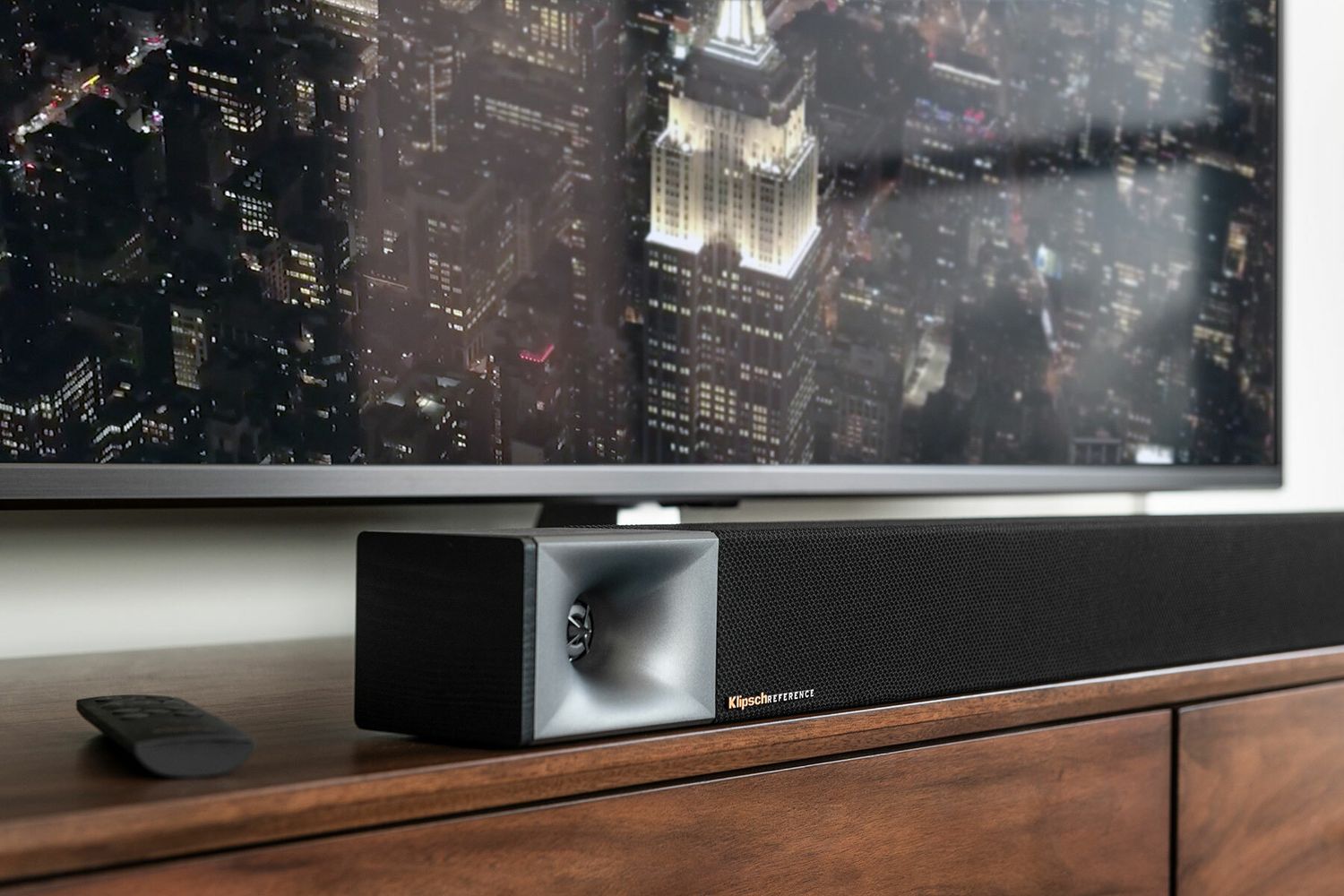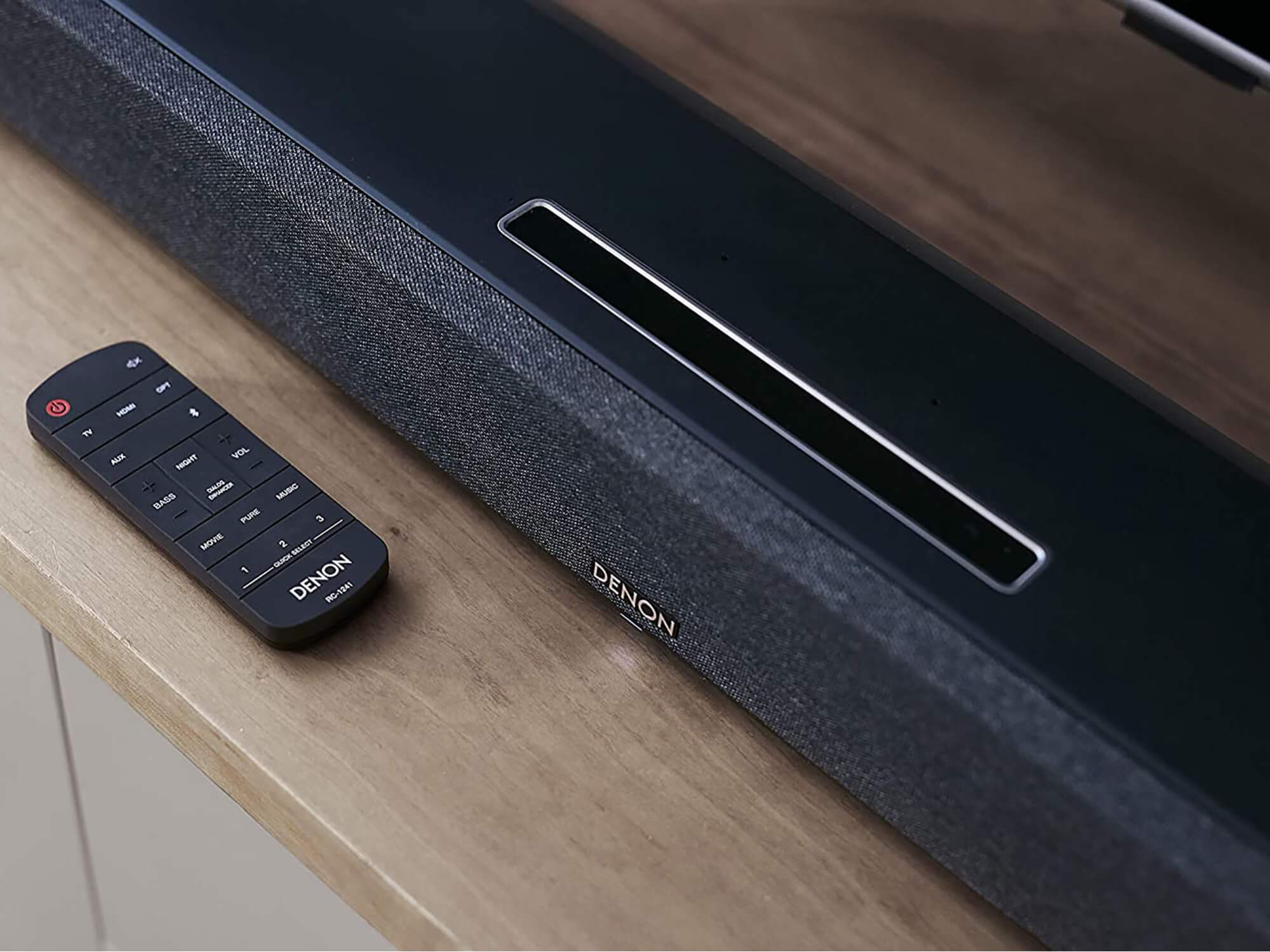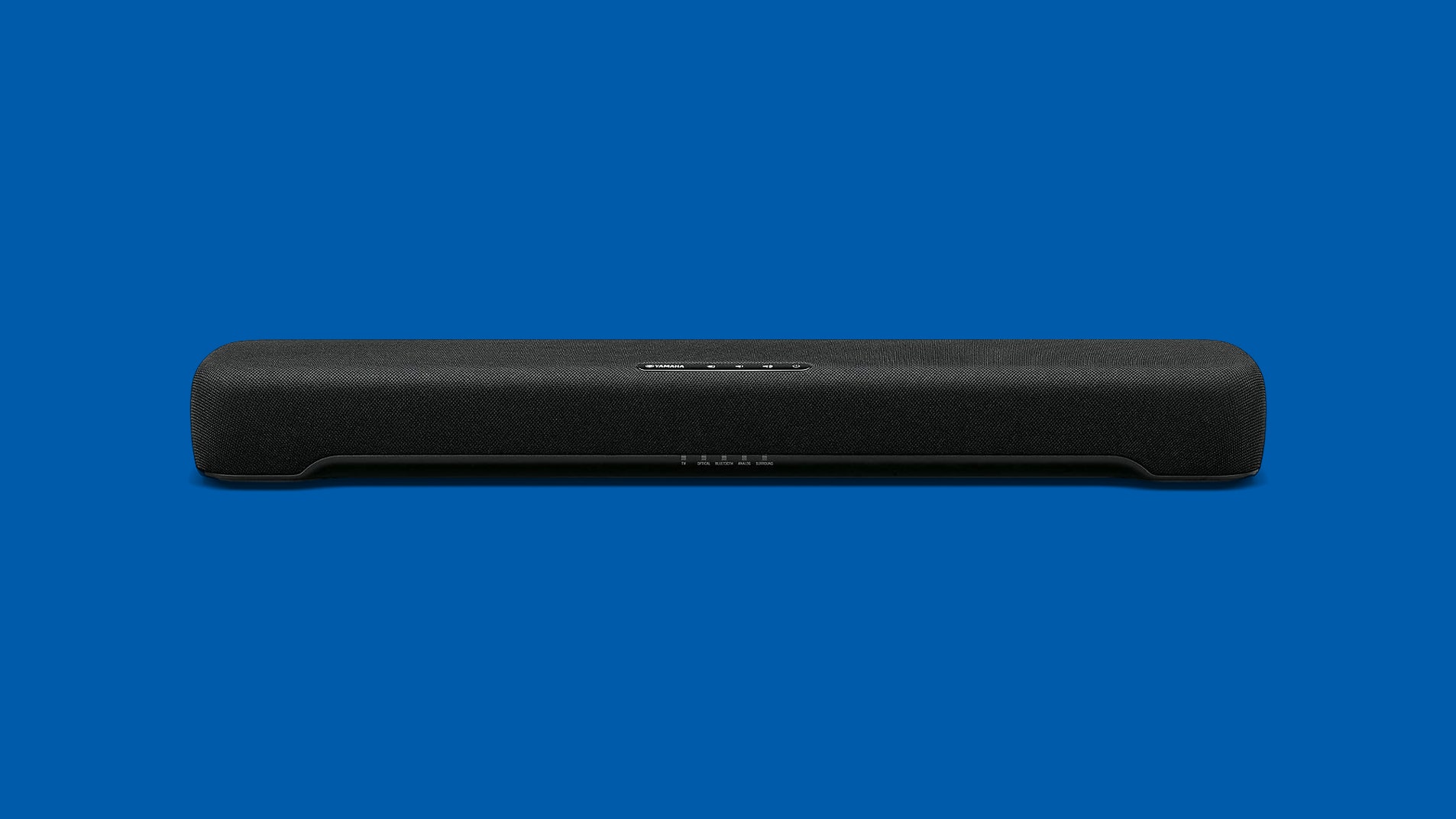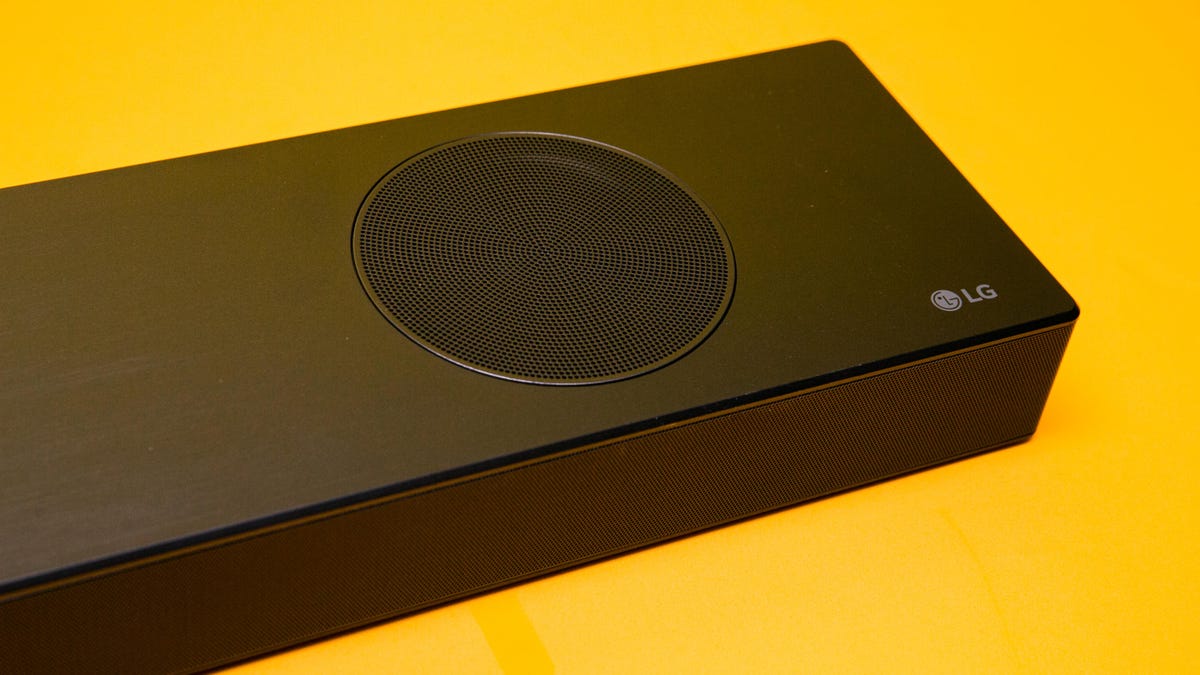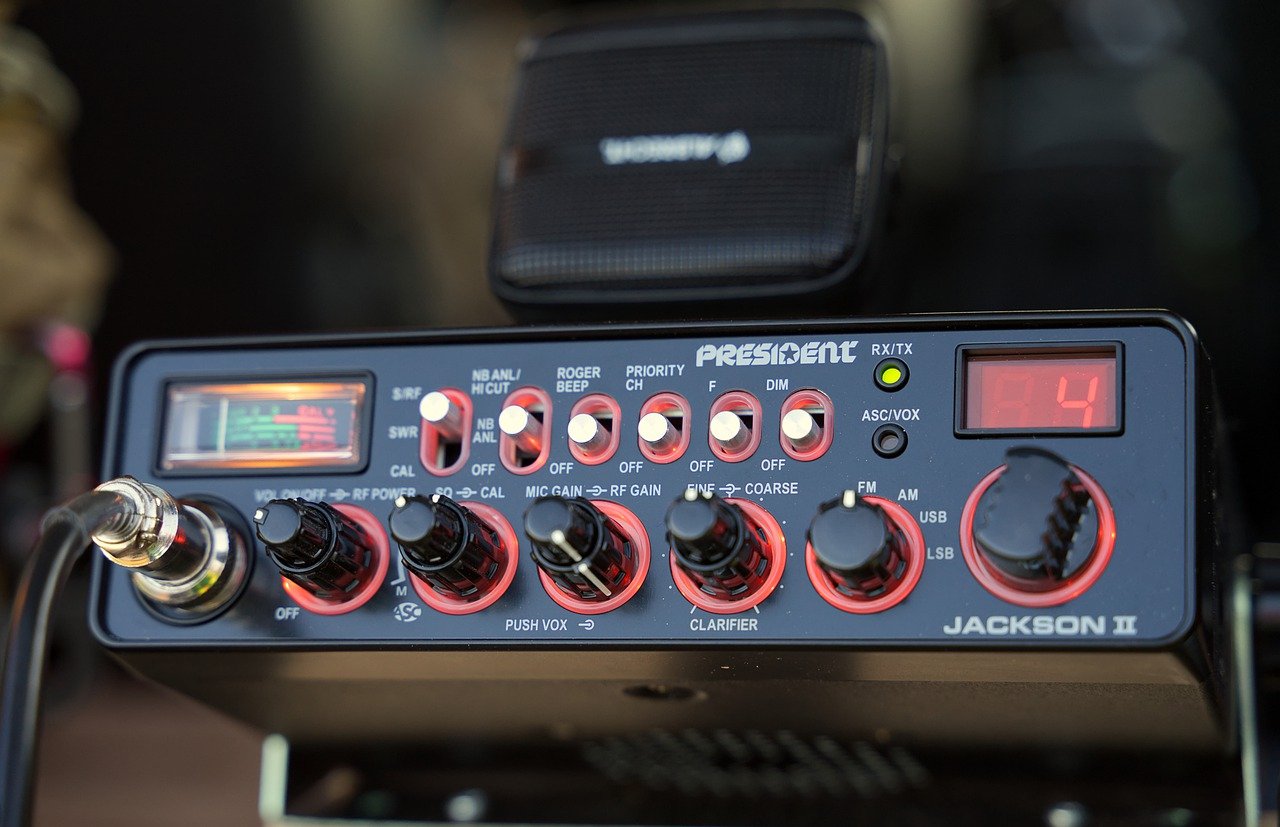Home>Production & Technology>Sound Bar>How Many Watts Is Good For A Sound Bar
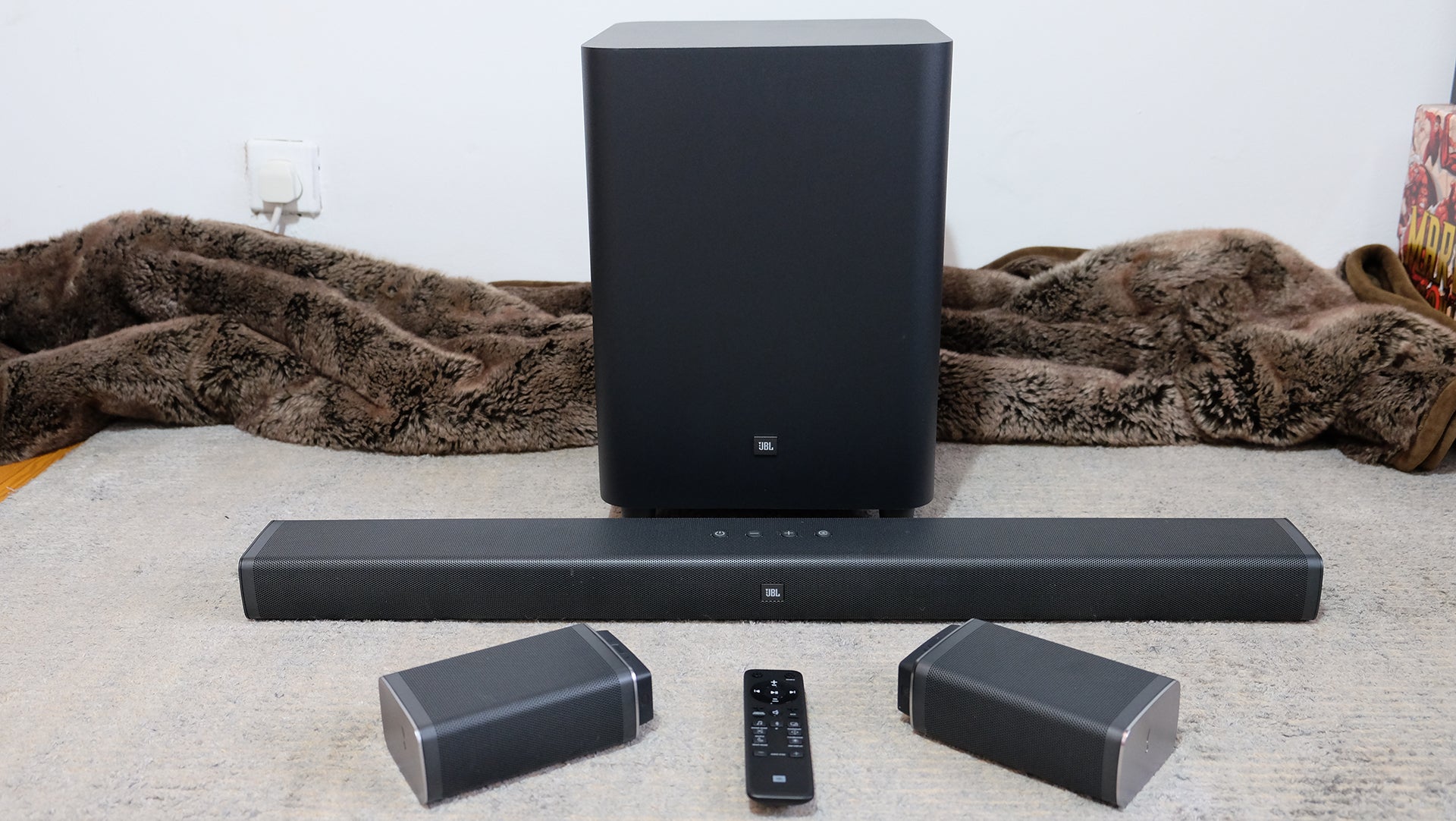

Sound Bar
How Many Watts Is Good For A Sound Bar
Published: December 26, 2023
Discover the perfect wattage for your sound bar and enhance your audio experience. Find out how many watts are ideal for a sound bar and make the most of your entertainment setup.
(Many of the links in this article redirect to a specific reviewed product. Your purchase of these products through affiliate links helps to generate commission for AudioLover.com, at no extra cost. Learn more)
Table of Contents
Introduction
Welcome to the world of sound bars! These sleek and compact devices have revolutionized the way we experience audio at home. Whether you’re a music enthusiast or a movie buff, a quality sound bar can greatly enhance your entertainment setup. But with so many options on the market, it can be overwhelming to find the right one for your needs.
One key factor to consider when choosing a sound bar is its wattage. Wattage refers to the power output of the sound bar’s built-in amplifier. It plays a crucial role in determining the sound quality and volume levels that the sound bar can deliver.
In this article, we’ll explore the topic of sound bar wattage in detail and help you understand how much wattage is good for a sound bar. We’ll delve into the various factors you should consider when determining the appropriate wattage for your setup, including room size and layout, listening preferences, sound quality, and power efficiency.
By the end of this article, you’ll have a clearer understanding of how wattage impacts sound bar performance and be well-equipped to make an informed decision when purchasing your next sound bar.
Understanding Sound Bar Wattage
Sound bar wattage refers to the power output of the sound bar’s amplifier, which determines the loudness and clarity of the audio it produces. It is measured in watts and indicates how much electrical energy the sound bar can convert into sound waves.
It’s important to note that higher wattage doesn’t always mean better sound quality. The wattage alone doesn’t indicate the overall performance of a sound bar. Other factors such as speaker design, sound processing technology, and driver quality also play crucial roles in determining audio quality.
However, wattage does influence the maximum volume levels a sound bar can achieve. A sound bar with higher wattage will generally be capable of producing louder sound without distortion. This can be advantageous when watching action-packed movies or hosting parties where you want to fill the room with sound.
On the other hand, if you primarily use your sound bar for casual listening or in smaller spaces, a lower wattage unit may suffice. It’s important to find a balance between power and your specific needs to ensure an optimal listening experience.
Additionally, it’s worth mentioning that manufacturers often inflate wattage numbers for marketing purposes. Some brands may claim high wattage outputs that may not necessarily translate to better performance. That’s why it’s crucial to not solely rely on wattage when choosing a sound bar. Instead, consider the overall reputation and reviews of the sound bar to get a more accurate assessment of its audio capabilities.
As technology advances, sound bars are becoming more efficient at utilizing their power to deliver impressive sound quality. So, even if you come across a lower wattage sound bar, it may still produce excellent audio if it has advanced audio processing algorithms and high-quality drivers.
Factors to Consider
When determining the appropriate sound bar wattage for your setup, there are several factors to consider. These factors will ensure that you choose a sound bar that harmonizes with your room size, listening preferences, and desired sound quality.
Room Size and Layout
The size and layout of your room play a crucial role in determining the ideal wattage for your sound bar. Larger rooms require more power to fill the space with sound, while smaller rooms may not need as much wattage. Consider the dimensions of your room and whether it is an open space or has partitions that could affect sound distribution. This will help you determine if you need a sound bar with higher wattage to provide sufficient volume and coverage.
Listening Preferences
Your listening preferences also play a significant role in wattage selection. Do you enjoy listening to music at high volumes? Are you a movie enthusiast who craves immersive surround sound? If so, a sound bar with higher wattage may be better suited for you. However, if you prefer subtle and nuanced audio, a lower wattage sound bar could be sufficient.
Sound Quality
While wattage alone doesn’t guarantee superior sound quality, it is still essential to consider the overall audio capabilities of the sound bar. Look for sound bars with advanced audio technologies, such as Dolby Digital or DTS:X, as these can significantly enhance your listening experience. Pay attention to the soundbar’s frequency response, driver quality, and the presence of dedicated subwoofers and tweeters to ensure well-balanced and immersive sound.
Power Efficiency
Power efficiency is another aspect to consider when choosing a sound bar wattage. If energy efficiency is a priority for you, opting for a sound bar with lower wattage can help save electricity. Look for sound bars that have energy-saving features like auto standby mode or low power consumption without compromising audio performance.
Remember, these factors work together, so it’s important to strike a balance. A room with a larger size, for example, may require higher wattage, but it’s equally crucial to consider other factors such as sound quality and power efficiency.
Room Size and Layout
The size and layout of your room are key considerations when determining the appropriate wattage for your sound bar. The goal is to ensure that the sound bar can deliver adequate volume and coverage to fill the space with immersive audio.
For larger rooms, you will generally need a sound bar with higher wattage to compensate for the increased distance between the sound bar and the listeners. The sound waves must travel farther, making it necessary for the sound bar to generate a more significant amount of power to maintain clarity and volume. A higher wattage sound bar will have the capability to project sound across a larger area, ensuring that everyone in the room can enjoy the audio experience.
On the other hand, if you have a smaller room, such as a bedroom or office, you may not require as much wattage. The proximity between the sound bar and the listeners is closer, so even a lower wattage sound bar can provide an adequate volume level. In fact, using a sound bar with excessively high wattage in a small room may lead to overpowering sound or distortion at higher volumes.
In addition to room size, the layout of the room also influences your wattage requirements. An open-concept layout with adjacent rooms or a space with high ceilings and multiple openings can impact sound distribution. Sound can disperse more easily in these scenarios, resulting in the need for higher wattage to ensure even coverage throughout the entire space.
Alternatively, if your room has partitions or is acoustically treated, the sound waves may be contained within a smaller area, requiring lower wattage. These factors can help to optimize the sound experience and prevent sound leakage into other areas.
It’s important to consider the specific dimensions and characteristics of your room when choosing a sound bar. Look for sound bars that provide wattage recommendations based on room size, or consult with the manufacturer or a sound professional to ensure you select the most suitable wattage for your specific room.
Listening Preferences
Your listening preferences play a significant role in determining the appropriate wattage for your sound bar. Understanding how you engage with audio content and your preferred volume levels will help you choose a sound bar that aligns with your specific needs.
If you enjoy listening to music at higher volumes, a sound bar with higher wattage may be ideal for you. Higher wattage allows the sound bar to produce louder audio without distortion, ensuring that every beat and note are delivered with clarity and impact. This is particularly advantageous if you frequently host gatherings or enjoy a more immersive music experience.
On the other hand, if you prefer a more subtle and nuanced audio experience, a lower wattage sound bar may suffice. Some people find that higher wattage can be overwhelming in certain listening scenarios, and they prefer a more balanced and controlled sound profile. If you primarily use your sound bar for casual listening or in quieter settings, selecting a sound bar with lower wattage can be a suitable choice.
Consider your personal preferences when it comes to volume levels. If you find yourself frequently adjusting the volume up or down to find your sweet spot, a sound bar with adjustable wattage options or built-in sound modes can be advantageous. These features allow you to customize the audio output to match your preferred listening experience, making it easier to achieve the desired volume levels without compromising sound quality.
It’s also worth mentioning that your listening preferences may vary depending on the content you engage with. For instance, if you’re a movie enthusiast who craves a cinematic experience, you may want to opt for a sound bar with higher wattage to ensure dynamic and powerful audio during explosive action sequences. Conversely, if you primarily use your sound bar for podcasts or dialogue-heavy content, a lower wattage sound bar may be sufficient to accurately reproduce the spoken words.
By considering your listening preferences, you can choose a sound bar wattage that complements your audio preferences, providing an enjoyable and tailored listening experience.
Sound Quality
When it comes to choosing a sound bar wattage, sound quality is a crucial factor to consider. While wattage alone doesn’t guarantee superior sound quality, it is essential to assess the overall audio capabilities of the sound bar to ensure an immersive and enjoyable listening experience.
Pay attention to the sound reproduction capabilities of the sound bar. Look for features such as Dolby Atmos, DTS:X, or other advanced audio technologies that can enhance the spatial and three-dimensional sound experience. These technologies create a more immersive environment by simulating sound coming from various directions, making you feel like you’re right in the middle of the action.
The presence of dedicated subwoofers and tweeters can also greatly impact sound quality. Subwoofers enhance the lower frequencies, delivering deep and powerful bass, while tweeters handle the higher frequencies, ensuring crisp and clear treble. A sound bar with separate subwoofers and tweeters can produce a well-balanced and rich sound profile.
Additionally, consider the soundbar’s frequency response range. A wider frequency response (typically indicated in hertz) indicates that the soundbar can reproduce a broader range of audio frequencies. This results in more accurate and detailed sound reproduction across the entire frequency spectrum, from deep bass to high treble.
It’s also important to consider the quality of the drivers used in the sound bar. High-quality drivers can accurately reproduce the audio, capturing the subtle nuances and dynamics of the content you’re listening to. Look for sound bars with well-engineered and reputable drivers to ensure a high level of sound fidelity.
Lastly, consider reading reviews and seeking recommendations from audio professionals or other users to get a better understanding of the sound quality of different sound bars. User reviews can provide valuable insights into the real-world performance and overall satisfaction of a particular sound bar model.
Remember, while wattage is an important consideration, it is just one piece of the puzzle when it comes to sound quality. By considering the overall audio capabilities, advanced technologies, driver quality, and user reviews, you can select a sound bar that delivers exceptional sound quality for an immersive and enjoyable listening experience.
Power Efficiency
When choosing a sound bar wattage, it’s worth considering the power efficiency of the device. Power efficiency not only affects energy consumption but also impacts the overall cost of ownership and sustainability of your sound bar.
Opting for a power-efficient sound bar can help reduce your electricity bill and minimize your carbon footprint. Look for sound bars that have energy-saving features, such as automatic standby mode or low power consumption when idle. These features ensure that the sound bar is not constantly drawing excessive power when not in use, effectively saving energy and reducing your environmental impact.
While higher wattage sound bars tend to provide more powerful and dynamic audio, they often consume more electricity. However, advancements in technology have resulted in more efficient power usage in sound bars. Manufacturers have developed ways to maximize the performance of the sound bar while minimizing energy consumption.
Consider your usage patterns when evaluating power efficiency. If you frequently use your sound bar for extended periods, it may be beneficial to choose a lower wattage option with better power efficiency. On the other hand, if you only use your sound bar occasionally, the overall energy consumption may be less of a concern.
It’s important to strike a balance between wattage, sound quality, and power efficiency. While higher wattage sound bars provide the potential for more robust audio, they may consume more power. On the contrary, lower wattage sound bars may be more power-efficient, but they may not offer the same level of audio performance.
Reading product specifications and reviews can help you identify power-efficient sound bars. Look for sound bars that have energy-efficient certifications, such as ENERGY STAR, which signifies that the device meets strict energy efficiency criteria.
Ultimately, the power efficiency of your sound bar should align with your personal values and energy consumption goals. By considering power efficiency alongside other factors like wattage and sound quality, you can make a more informed decision and choose a sound bar that not only suits your audio needs but also contributes to a more sustainable lifestyle.
Recommended Wattage Range
Choosing the right wattage for your sound bar can be overwhelming, but there is a recommended wattage range that can serve as a helpful guideline. Keep in mind that these ranges are approximate and can vary depending on the specific characteristics of your room and listening preferences.
For small to medium-sized rooms, a sound bar with wattage between 20W to 100W can be sufficient. This range is suitable for bedrooms, home offices, or smaller living spaces where you don’t need excessively high volume levels. It provides enough power to deliver clear and enjoyable audio without overpowering the room.
For larger rooms or open-concept spaces, a sound bar with wattage between 100W to 300W may be more appropriate. This higher wattage range ensures that the sound can reach all corners of the room and maintain volume and clarity even at greater distances from the sound bar. It can provide a more immersive audio experience for movie nights or parties where you want to fill the space with sound.
For those seeking a more premium audio experience or have particularly large rooms, sound bars with wattage exceeding 300W are available. These high-wattage sound bars are designed to deliver powerful and room-filling sound, suitable for dedicated home theaters or audiophiles who demand the utmost in sound quality and volume.
It’s important to consider that wattage is just one factor in choosing a sound bar. Evaluating other factors such as room size, layout, listening preferences, and sound quality will help you determine the ideal wattage within the recommended range for your specific needs.
Remember, sound bar wattage is not a one-size-fits-all solution. It’s essential to consider your own requirements and preferences. If possible, it’s always beneficial to audition different sound bars to assess their performance and determine the wattage range that best suits your audio needs.
Conclusion
Choosing the right wattage for your sound bar is crucial to ensure an optimal audio experience in your home. While wattage is an important consideration, it should not be the sole determining factor. Factors such as room size and layout, listening preferences, sound quality, and power efficiency all play a role in finding the perfect balance for your specific needs.
Understanding the relationship between wattage and room size is essential. Larger rooms generally require higher wattage sound bars to ensure sufficient volume and coverage, while smaller rooms may not need as much power. Evaluating your listening preferences, such as desired volume levels and audio content, will help you determine whether a higher or lower wattage sound bar is suitable for you.
In addition, considering the sound quality is essential as wattage alone doesn’t guarantee superior audio performance. Look for sound bars with advanced audio technologies, dedicated subwoofers and tweeters, and reputable drivers to ensure a well-balanced and immersive sound experience.
Power efficiency is another factor to consider, especially if energy savings and sustainability are important to you. Opting for a power-efficient sound bar can help reduce your electricity bill and minimize your environmental impact.
Lastly, it’s important to keep in mind that the recommended wattage range provides a general guideline. Personal preferences, room characteristics, and other factors can influence the ideal wattage for your specific setup. Take the time to research and test different sound bars to find the one that aligns with your audio needs.
By considering these factors and finding the right wattage for your sound bar, you can create an immersive and enjoyable audio experience that enhances your music, movies, and overall entertainment at home.

